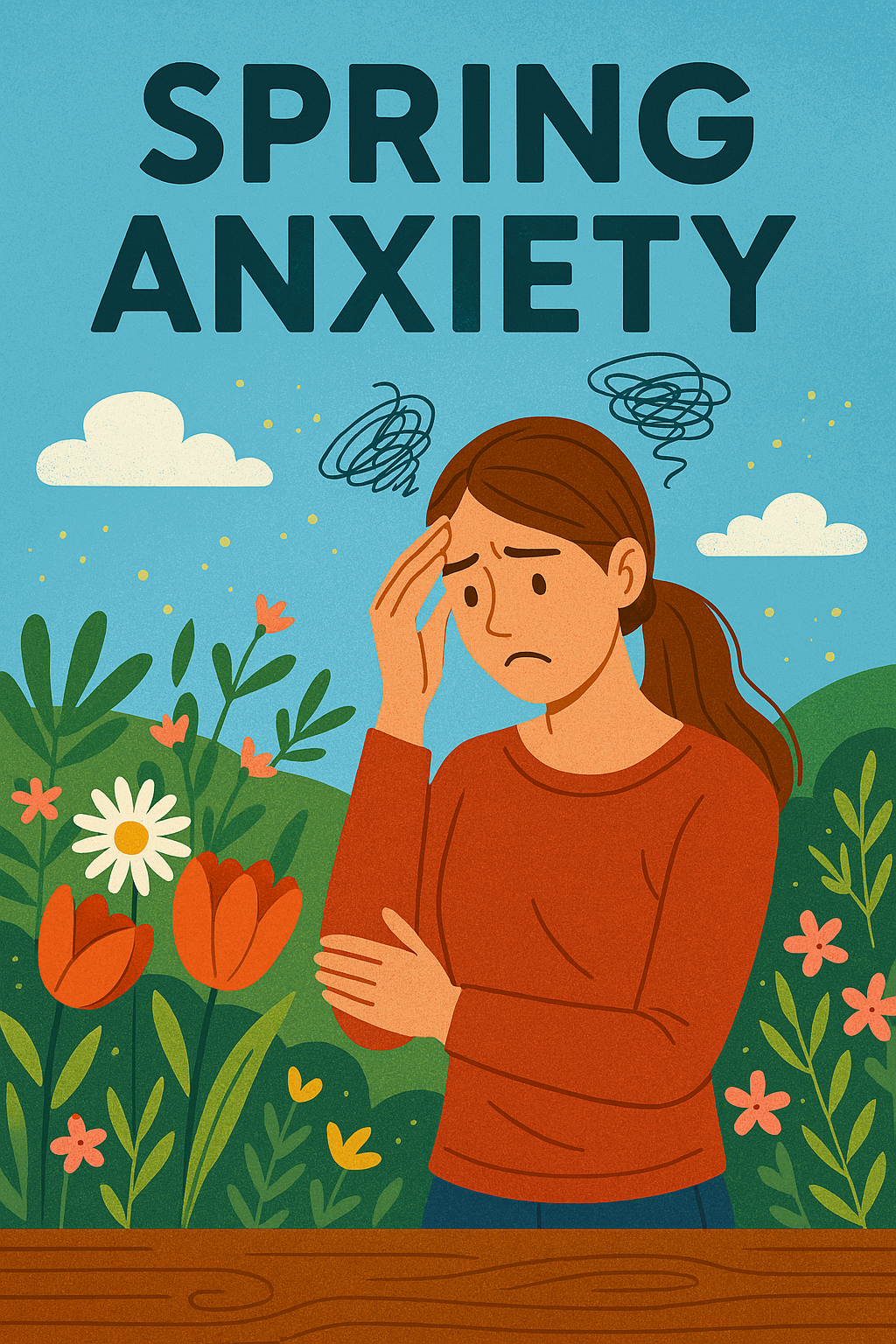What Is Spring Anxiety?
While spring is often associated with renewal and positivity, for some, it brings about unexpected feelings of anxiety and discomfort. This paradox can be perplexing, especially when societal expectations emphasize the cheerfulness of the season.
Causes of Spring Anxiety
Several factors contribute to the onset of anxiety during spring:
- Seasonal Transitions:
The shift from winter to spring involves changes in routines and environments. Adjusting to longer days and increased social activities can be overwhelming for some individuals.
- Unpredictable Weather:
Spring's fluctuating weather patterns can lead to uncertainty and stress, particularly for those sensitive to environmental changes.
- Increased Social Expectations:
With the arrival of warmer weather, there's often a societal push to be more active and social. This pressure can be daunting for individuals who experience social anxiety or prefer solitude.
- Disrupted Sleep Patterns:
Longer daylight hours can interfere with sleep schedules, leading to fatigue and heightened anxiety levels.
- Seasonal Affective Disorder (SAD):
While commonly associated with winter, SAD can also occur during spring and summer months, manifesting as agitation, insomnia, and irritability.
Strategies to Manage Spring Anxiety
If you find yourself grappling with anxiety during the spring season, consider the following approaches:
- Acknowledge Your Feelings:
Recognize that it's okay to feel anxious during this time. Understanding that spring anxiety is a legitimate experience can be validating.
- Maintain a Consistent Routine:
Establishing a stable daily routine can provide a sense of control amidst seasonal changes.
- Set Realistic Expectations:
Give yourself permission to engage in activities at your own pace without succumbing to societal pressures.
- Prioritize Sleep Hygiene:
Ensure you're getting adequate rest by maintaining a regular sleep schedule and creating a conducive sleep environment.
- Engage in Mindfulness Practices:
Techniques such as meditation, deep breathing exercises, and yoga can help ground you and alleviate anxiety.
- Seek Professional Support if Needed:
If your anxiety becomes overwhelming, don't hesitate to reach out to a mental health professional for guidance and support.
Conclusion
Experiencing anxiety during the spring season is more common than many realize. By understanding the potential triggers and implementing coping strategies, you can navigate this seasonal transition with greater ease and self-compassion. Remember, it's important to honor your feelings and seek support when necessary.
For more insights and resources on mental health, stay tuned to our blog. Your well-being matters, and we're here to support you through every season.
